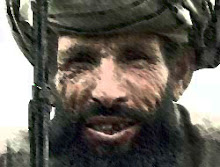 by Fathali M. Moghaddam
by Fathali M. MoghaddamFrom the publisher:
This book explores modern Islamic terrorism in the context of globalization and cultural evolution. 21st century terrorism is different and new, first because it relies heavily on electronic communication systems and other aspects of modern technologies, and second, because it is in large part a product of fractured globalization, with its associated threats to the collective identity of Muslims.
Part one of this work contrasts globalization as an ideal with globalization as it is actually taking place, with its enormous contradictions and threats. Moghaddam, a longtime and highly respected terrorism and conflict researcher, argues that globalization is resulting in serious threats to the basic psychological needs of some, particularly in connection with collective identity.
Part two explores how globalization has brought sudden contact between different groups with no previous history of large-scale contact, resulting in a rapid decline in diversity. Terrorism is one of the dysfunctional defense mechanisms of people in such conditions, facing external threats.
Part three describes long-term solutions, focusing particularly on the role of women and the nature of the family in traditional Islamic societies. Moghaddam shows us why globalization is resulting in what he calls "catastrophic evolution," the rapid decline and disappearance of minority cultures and languages, and why that brings a clash of ideologies and the rise of extremism. There are also other dangerous trends, and those call for inspired solutions, springing from an understanding that traditional conflict-resolution, evolved in the shadow of the Cold War, is no longer effective and needs to change.



































